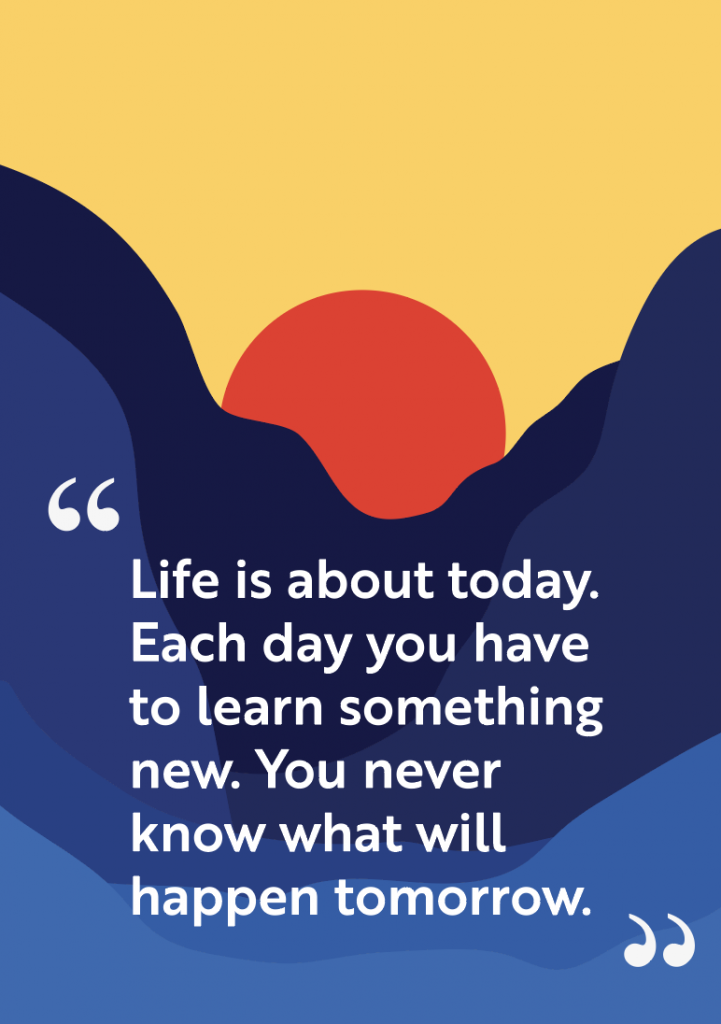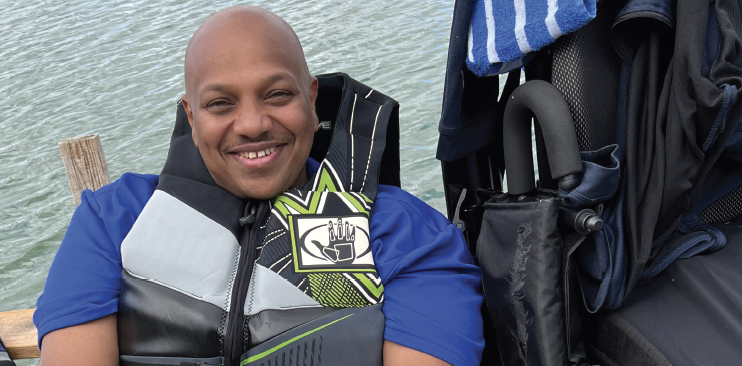His mobility devices were often self-made and self-repaired. “Often, there were stairs everywhere,” shares Saleh, “And ‘stairs’ became the word for ‘obstacles.’” While he remembers that he often missed out on hanging out with his cousins due to accessibility barriers, he also recalls becoming a quick problem solver who found ways around the challenges that presented themselves.
“While most people didn’t even know what a disability was, I knew that I was different, but my family treated me well and we made things work,” he says, “My family taught me that everyone has their differences.”
Despite having a loving and accepting family, Saleh experienced numerous physical challenges throughout his life. For instance, he didn’t have access to a wheelchair and was carried around much of the time, longing for independence. “When my family and I were in Egypt, it was more accessible,” he shares, “There was an elevator and it felt like magic because I could do things on my own.” In Saudi Arabia, it was far more difficult, with inadequate curb cuts and sometimes, a lack of pavement altogether. “It felt like prison,” Saleh shares.
 Saleh’s journey to Canada was filled with life-threatening scenarios as he wandered through the desert without a proper wheelchair. A worn-out wooden board with wheels on the bottom supported Saleh throughout his long trip. “It was difficult,” he shares, “I witnessed people lose hope and commit suicide. We travelled by boat without life jackets a lot and water would get in. I never lost my sense of humour, though, even in the worst of situations. I would joke and say that I am good at drowning,” he laughs.
Saleh’s journey to Canada was filled with life-threatening scenarios as he wandered through the desert without a proper wheelchair. A worn-out wooden board with wheels on the bottom supported Saleh throughout his long trip. “It was difficult,” he shares, “I witnessed people lose hope and commit suicide. We travelled by boat without life jackets a lot and water would get in. I never lost my sense of humour, though, even in the worst of situations. I would joke and say that I am good at drowning,” he laughs.
After a difficult journey from desert lands to water, Saleh finally boarded a plane and was en route to Canada. “For me, being on a plane was surreal because I had only seen one in the movies,” he shares. He landed in Canada and was eventually referred to Spinal Cord Injury Ontario, where he was connected to a variety of helpful resources through his Regional Services Coordinator. At his first seating clinic, the Occupational Therapist asked Saleh if he had any wheelchair skills, to which Saleh burst out chuckling. “Of course, I have wheelchair skills. Back in the day, I had a chair with no back and I had to learn to pop a wheelie. Sometimes, I had no front wheels. I think I could manage a wheelchair,” says Saleh with a smile. Apart from seating, Saleh was also connected to accessible transportation, PSW care, a commode and bowel routine. “I gained my dignity back. Before working with SCIO, I was using my wooden plank with wheels…it was my wheelchair and my commode too.”
Looking ahead, Saleh hopes to pursue social work to help new immigrants with disabilities adjust to Canadian life. He is currently completing his high school diploma and in his free time, volunteers in Regent Park and attends SCIO events to try new things. He recently attended a waterskiing event put on by Water Ski Wakeboard Ontario and thoroughly enjoyed being in the water.
“I was the very last one to try waterskiing on the day of the event and I told my old joke – that I am good at drowning. That worried people, so they gave me two instructors.”
Saleh describes a liberating and enthralling feeling while being in the water. “For me, it wasn’t scary at all. It didn’t feel dangerous, because I had the instructors with me and I knew I was completely safe. Having been in dangerous life-threatening scenarios in my past, this was completely the opposite,” he shares, “I loved it and want to do it again for sure.”
The event has inspired him to put the CN Tower’s Edge Walk on his bucket list. “Maybe I’ll even try skydiving,” he says, “Why not? Life is about today. Each day you have to learn something new. You never know what will happen tomorrow.”


